
Funk is a music genre that originated in African-American communities in the mid-1960s when musicians created a rhythmic, danceable new form of music through a mixture of various music genres that were popular among African-Americans in the mid-20th century. It deemphasizes melody and chord progressions and focuses on a strong rhythmic groove of a bassline played by an electric bassist and a drum part played by a percussionist, often at slower tempos than other popular music. Funk typically consists of a complex percussive groove with rhythm instruments playing interlocking grooves that create a "hypnotic" and "danceable" feel. It uses the same richly colored extended chords found in bebop jazz, such as minor chords with added sevenths and elevenths, and dominant seventh chords with altered ninths and thirteenths.
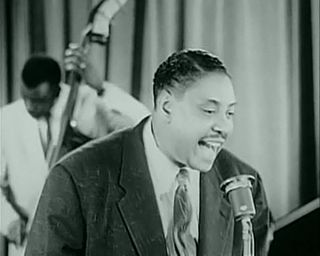
Rhythm and blues, frequently abbreviated as R&B or R'n'B, is a genre of popular music that originated within African-American communities in the 1940s. The term was originally used by record companies to describe recordings marketed predominantly to African Americans, at a time when "rocking, jazz based music ... [with a] heavy, insistent beat" was becoming more popular. In the commercial rhythm and blues music typical of the 1950s through the 1970s, the bands usually consisted of a piano, one or two guitars, bass, drums, one or more saxophones, and sometimes background vocalists. R&B lyrical themes often encapsulate the African-American history and experience of pain and the quest for freedom and joy, as well as triumphs and failures in terms of societal racism, oppression, relationships, economics, and aspirations.

Arthur Lanon Neville Jr. was an American singer, songwriter and keyboardist from New Orleans.

Sammie 'Big Sam' Williams is a trombonist and band leader from New Orleans, Louisiana. He has been a member of the Dirty Dozen Brass Band and leads Big Sam's Funky Nation.

Mem Shannon is an American blues musician. He is currently signed to Toronto's NorthernBlues Music. Shannon is a former taxi-cab driver turned bluesman.

Walter "Wolfman" Washington was an American singer and guitarist, based in New Orleans, Louisiana, United States. While his roots were in blues music, he blended in the essence of funk and R&B to create his own unique sound.
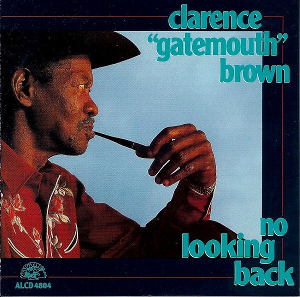
No Looking Back is an album by the American musician Clarence "Gatemouth" Brown, released in 1992. Brown supported the album with a North American tour.
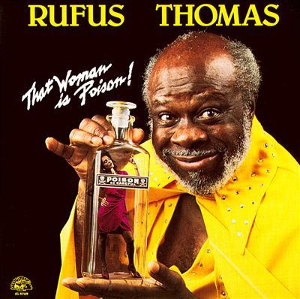
That Woman Is Poison! is an album by the American R&B musician Rufus Thomas. Originally recorded for King Snake Records, it was released in 1988 via Alligator Records. Thomas was in his seventies when he made That Woman Is Poison!

The Get-Go is an album by the American musician Paul Cebar, released in 1997. Although not credited on the album cover, Cebar was backed by his band, the Milwaukeeans.
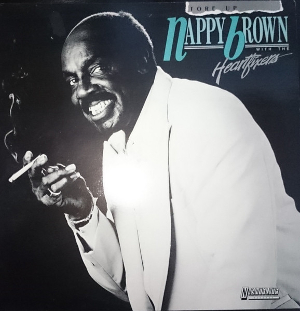
Tore Up is an album by the American blues musician Nappy Brown, released in 1984. A comeback album, it was recorded with Tinsley Ellis and the Heartfixers. The album was reissued by Alligator Records in 1990.
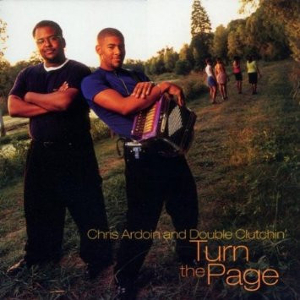
Turn the Page is an album by the American zydeco musician Chris Ardoin, released in 1998. His band, Double Clutchin'—which included his brother, Sean—is also credited. Ardoin was still a teenager when the album was recorded.
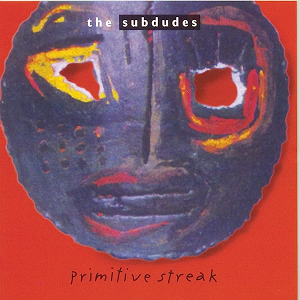
Primitive Streak is an album by the American band the Subdudes, released in 1996. It was a success on Americana album charts. The band supported the album with a North American tour, which included shows with Anders Osborne.
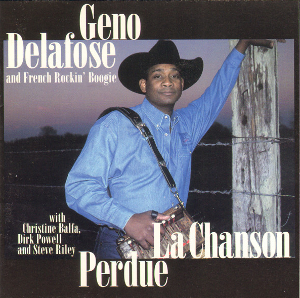
La Chanson Perdue is an album by the American musician Geno Delafose, released in 1998. He is credited with his band, French Rockin' Boogie. Delafose considered the album to be a combination of Creole zydeco and Cajun music; however, the title of the album in part refers to the popularity of zydeco overtaking traditional Creole music. Delafose supported the album with a North American tour.
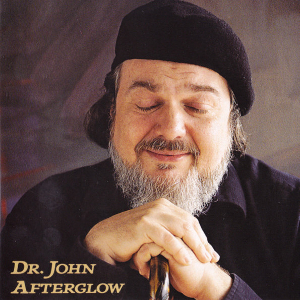
Afterglow is an album by the American musician Dr. John, released in 1995. The majority of the tracks are covers of jazz and blues songs from the 1940s and 1950s; many of the songs were introduced to Dr. John by his parents.

Follow Me Chicken is an album by the American musician Nathan Williams, released in 1993. He is credited with his band, the Zydeco Cha Chas.

Gonna Take You Downtown is an album by the American musician Beau Jocque, released in 1996. He is credited with his band, the Zydeco Hi-Rollers. Issued as a vinyl dance track, "Make It Stank " was a regional radio hit. Jocque supported the album with a North American tour.

Sexual Telepathy is an album by the American musician Earl King, released in 1990. King supported the album with a North American tour.

Fish Ain't Bitin' is the second album by the American musician Corey Harris, released in 1997 through Alligator Records. Harris supported the album with a North American tour that included shows opening for B.B. King. Fish Ain't Bitin' won a W. C. Handy Award for the best acoustic blues album of 1997.

Funk Is in the House is an album by the American musician Walter "Wolfman" Washington, released in 1998. Washington is credited with his band, the Roadmasters. Washington supported the album with a North American tour.

Annunciation is an album by the American band the Subdudes, released in 1994. The album title refers to Annunciation Street, in New Orleans; the album was originally intended to be released on Annunciation Day. Annunciation was the band's first album for High Street Records. The Subdudes supported the album with a North American tour. Annunciation sold more than 120,000 copies in its first eight months of release.




















